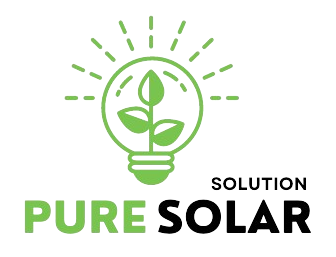In the quest for sustainable solutions to manage the growing waste produced by modern society, solar-powered waste management has emerged as a groundbreaking approach. By integrating solar energy with waste management systems, cities, and organizations are finding innovative ways to handle waste more efficiently while reducing their environmental impact. This blog post explores the four major benefits of solar-powered waste management, demonstrating how this technology not only transforms waste management practices but also contributes to a cleaner, greener future.

1. Enhanced Energy Efficiency
One of the most significant benefits of solar-powered waste management is the enhanced energy efficiency it provides. Traditional waste management systems often rely on conventional energy sources, which can be costly and environmentally taxing. Solar-powered waste management systems, however, utilize renewable solar energy to power waste processing facilities and equipment. This shift to solar energy reduces dependence on fossil fuels, leading to lower operational costs and decreased greenhouse gas emissions.
For example, solar panels installed on waste processing facilities can generate electricity to power sorting machines, compactors, and other essential equipment. This not only cuts down on energy expenses but also ensures that waste management processes are powered by a clean, sustainable energy source. As a result, the overall energy efficiency of waste management systems is significantly improved, contributing to more sustainable and cost-effective operations.
2. Cost Savings and Financial Benefits of Solar-Powered Waste Management
Another major benefit of solar-powered waste management is the potential for substantial cost savings. By investing in solar technology, waste management facilities can significantly reduce their energy bills. Solar panels have low operating costs and offer a return on investment through savings on electricity.
In addition to reducing energy costs, solar-powered waste management systems can offer financial incentives through government subsidies and tax credits. Many regions provide financial support for renewable energy projects, making it more affordable for waste management facilities to adopt solar technology. Over time, these cost savings can be reinvested into other aspects of waste management or used to improve community services.

3. Environmental Impact and Sustainability of Solar-Powered Waste Management
The environmental impact of solar-powered waste management is another compelling benefit. Traditional waste management practices can generate significant amounts of pollution and waste, contributing to environmental degradation. Solar-powered waste management systems, however, help mitigate these issues by leveraging clean energy and reducing reliance on fossil fuels.
By utilizing solar energy, these systems decrease greenhouse gas emissions and reduce the carbon footprint of waste management operations. Furthermore, solar-powered waste management can be part of a broader sustainability strategy that includes recycling, composting, and other eco-friendly practices. This integrated approach supports the transition to a circular economy, where waste is minimized and resources are conserved.
4. Increased Reliability and Independence with Solar-Powered Waste Management
The reliability and independence provided by solar-powered waste management systems are crucial benefits for many communities. Unlike conventional energy sources, which can be subject to fluctuations in availability and price, solar energy offers a consistent and renewable power supply. Solar panels generate electricity as long as there is sunlight, providing a reliable energy source for waste management operations.
This increased reliability is particularly valuable in remote or underserved areas where access to traditional energy infrastructure may be limited. Solar-powered waste management systems can operate independently of the grid, ensuring that waste processing and management continue uninterrupted even in challenging conditions. This autonomy enhances the resilience of waste management systems and ensures consistent service delivery.
Conclusion
Solar-powered waste management represents a significant advancement in the pursuit of sustainable waste management practices. By improving energy efficiency, reducing costs, minimizing environmental impact, and increasing reliability, this innovative approach offers numerous benefits for communities and organizations alike. As more waste management facilities adopt solar technology, the potential for a cleaner and more efficient waste management system grows. Embracing solar-powered waste management not only supports environmental sustainability but also paves the way for a greener, more resilient future.






